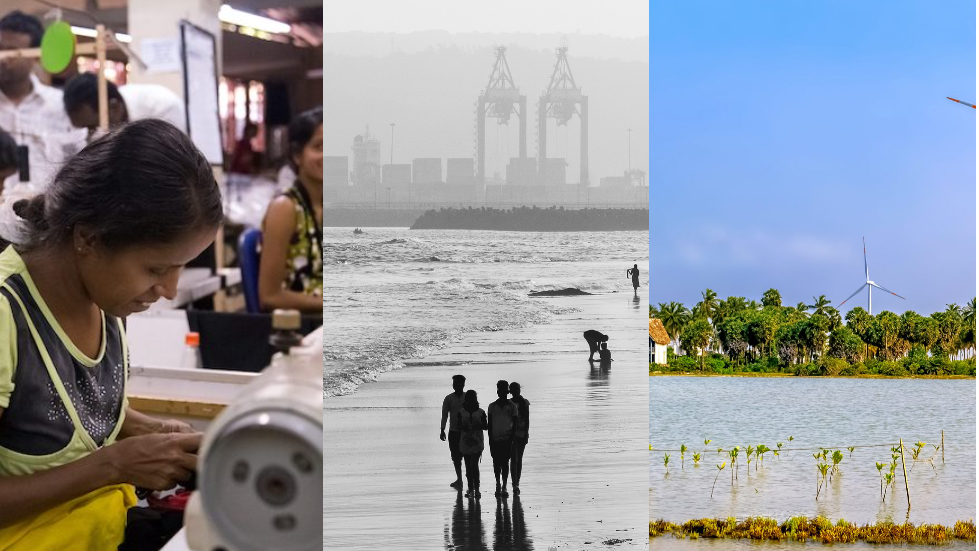Sri Lanka to slash industrial energy waste and greenhouse gas emissions
16 January 2023 Charles Arthur

In 2019 imported fossil fuels supplied more than half of Sri Lanka’s energy demand. Industry consumed about 15% of all oil products and 33% cent of electricity.
This reliance on fossil fuels has exposed the country to the worst effects of the global energy crisis. Last year, unprecedented petrol shortages brought Sri Lanka to a near standstill, while rising energy costs continue to create financial difficulties for households and businesses.
In December 2022, leaders from across industry, civil society, finance and academia met in Colombo to explore short and long-term energy solutions amidst Sri Lanka’s worst ever energy crisis. More than 100 participants heard from experts and shared their insights into how the economically important industrial sector can move towards more sustainable energy use.
In his address to the meeting, Minister for Industries Ramesh Pathirana said, “The industrial sector employs 30% of the national workforce, so it’s essential that we future proof this sector.”
The meeting took place in the framework of Accelerating Industries’ Climate Response in Sri Lanka, a five-year initiative designed to help the country’s industrial sector transition to a low-carbon future. By transitioning to renewable energy and improving the efficiency of industrial processes, the goal is to help cut greenhouse gas (GHG) emissions in the industrial sector by 7% by 2030.
“By decoupling Sri Lanka’s industrial development from the use of imported fossil fuels, we can avoid energy crises in the future and help slow down global climate change,” said Naseer Ahamed, Sri Lanka's Minister for the Environment.
The project was launched in mid-2022. It is led by the Ministry of Environment, Ministry of Industries and Ministry of Power and Energy, implemented by the United Nations Industrial Development Organization (UNIDO) and funded by the European Union under the Global Climate Change Alliance+.
An exhibition at the event showcased SrContenti Lanka’s Energy Savers, people in industry and government who are already helping improve energy use. Those attending were invited to nominate other Energy Savers whose efforts should be recognized - and who could inspire others to take action.
Nicholas Dehod, project manager for UNIDO, said, “Every transformational story needs people who will take on a challenge, run with it and make change happen. Sri Lanka’s Energy Savers are exactly that: courageous industry leaders and energy practitioners determined to help the country slash industries’ energy waste and greenhouse gas emissions. I look forward to seeing more Energy Savers emerge as the initiative progresses.”
There is considerable potential for reducing industrial energy waste in Sri Lanka’s manufacturing sector by deploying cost-effective technology and management practices. To harness this potential, Sri Lanka’s National Cleaner Production Centre and UNIDO trainers will guide a group of around 70 Energy Savers through an internationally recognized training course on Energy Management Systems.
“The course covers global best practices, but also takes participants out of the classroom into their work environments where together we develop energy management systems that are tailored to each company’s needs. This means that the end result is sustainable,” said Dehod.
“The ultimate goal is to encourage more and more companies to follow this first group’s lead and harness the full potential of improving industrial energy efficiency here in Sri Lanka.”
By the end of the one-year course, participating companies can expect to be on-track to slash up to 25% from their energy bills. Meanwhile, Sri Lanka will have a new cohort of energy consultants able to advise more companies on how to reduce energy waste and save money.
“We need to harness the potential in global markets for low-emission technologies and sustainable products across all industrial value chains in order to achieve climate neutrality. In the context of today’s economic crisis in Sri Lanka, achieving energy security and efficiency is vital for industries in this country,” said the European Union Head of Cooperation in Sri Lanka, Jenny Correia Nunes.
See: A low-carbon industrial sector will pay dividends for Sri Lanka’s economy and the planet - Sri Lanka Sunday Times, 2 June 2022
and
Six ways Sri Lankan industry can future-proof its energy security